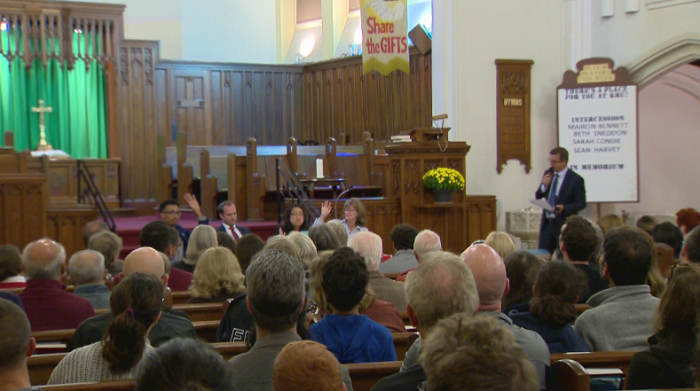Pity the local candidate in a federal election.

It’s no small thing to put your name forward for public office, enlisting all your friends and family to help knock on doors and put up campaign signs.
You might have a stellar resume, a compelling personal story, and integrity out the wazoo, but a misstep by the federal leader and it could all be for naught.
Think of all the Liberal candidates without racist yearbook photos, the Conservatives who only have a single-citizenship, or the New Democrats who have vacationed in the Maritimes more often than their leader has campaigned there.
Their political fortunes are tied to the success of the national campaign like a rock to a kite. Unless the wind high above blows in the right direction, they’re stuck on the ground going nowhere.
Recent polling by Ipsos shows that only 16 per cent of voters said their local candidate is the primary factor determining how they vote.

Get daily National news
Things get even trickier for incumbent government back-benchers.
As moderator of the recent Beaches-East York all-candidates meeting at Kingston Road United Church, I asked incumbent Liberal MP Nathaniel Erskine-Smith whether he agreed with the expulsion of Jane Philpott and Jody Wilson-Raybould from caucus for their criticism of Justin Trudeau’s handling of the SNC-Lavalin affair. Both women are running as independents now.
“Fundamentally I was not supportive,” said Erskine-Smith, who went on to say he understood the decision of his caucus colleagues who believed Wilson-Raybould was “pulling the whole party down.”
That distinction may not matter much since half of voters make their decision based on a party’s stance on issues, according to Ipsos polling. Thirty-four per cent said they choose which name to mark on the ballot based on the party and leader.
Sean Simpson, vice president at Ipsos, said that since the media focuses almost entirely on the federal campaign, “the party leader and the policies they espouse have replaced the local candidate as the primary determinant of vote choice.”
At the same debate, Erskine-Smith went out of his way to point out the number of times he’d disagreed with his own party, while Sean Manners of the Green Party, Mae J. Nam of the NDP and Deborah McKenzie of the People’s Party of Canada agreed it was important for a local representative to have their own voice.
The Conservative candidate, Nadirah Nazeer, did not attend.
So spare a thought for your local candidates when they come knocking on your door. They can agree or disagree with their own party, they can study all night for the all-candidates debate, or miss it entirely.
In the end, their electoral fate is largely out of their hands.









Comments